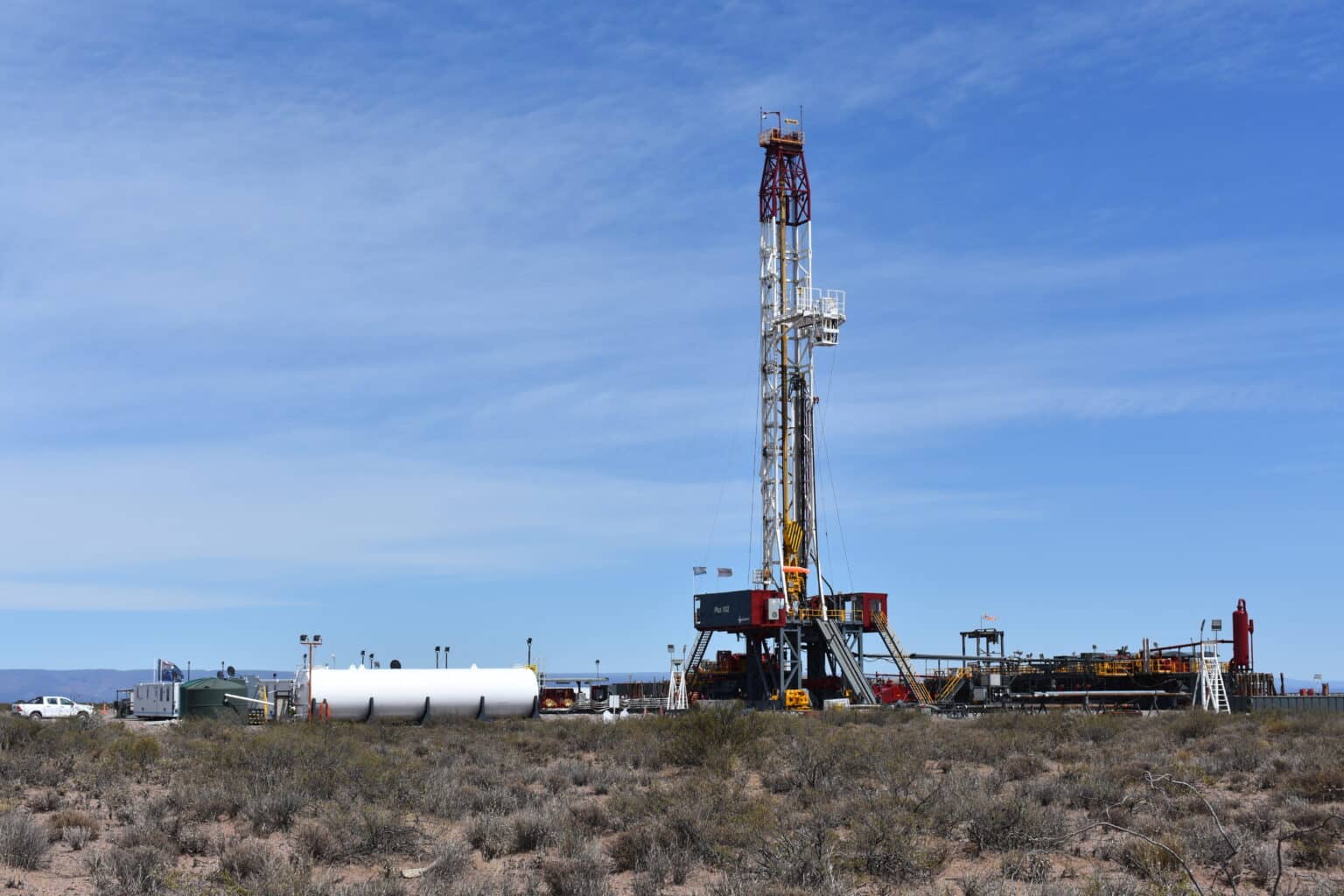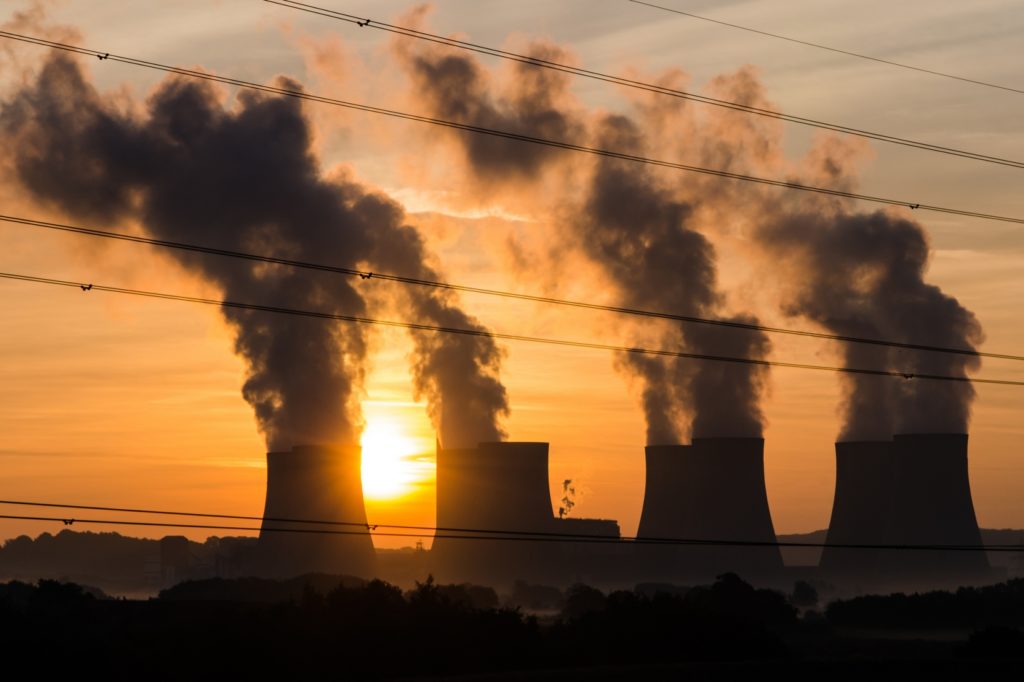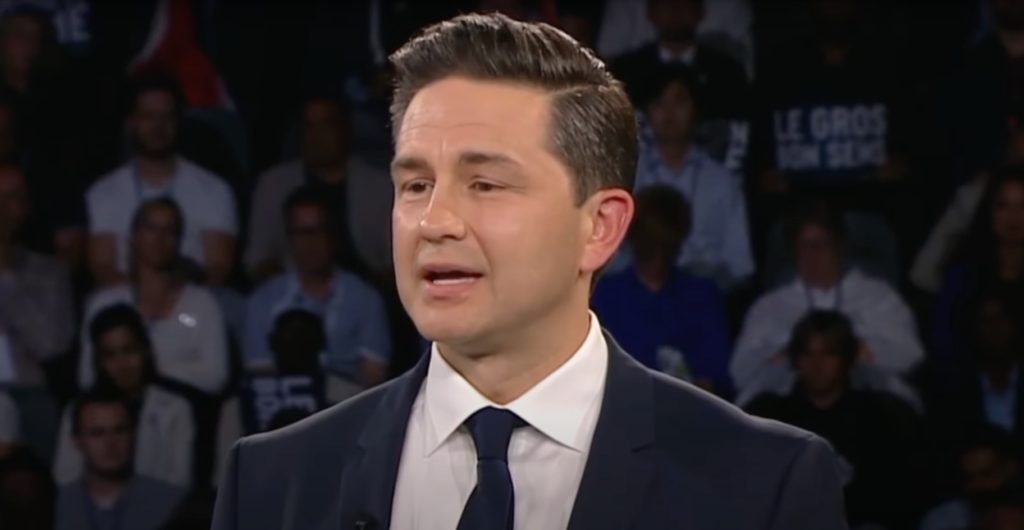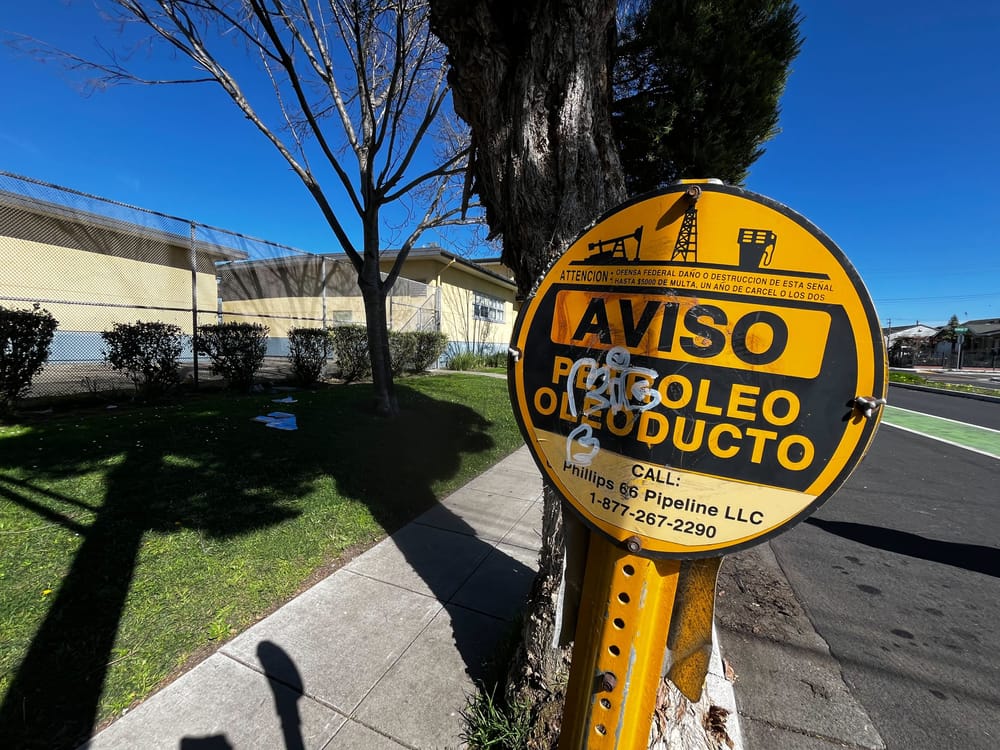Argentina’s risky gamble on fracking has led to massive environmental and public health costs, and despite years of government support, the industry remains on shaky financial ground. As the energy transition picks up pace, the South American nation could be left with tens of billions of dollars in stranded assets, according to a new report by Dutch consultancy Profundo. The Argentine government, with the cooperation of an array of global institutions, has the country locked in an “oil and gas trap,” mortgaging the country’s future on fracking even as the financial risks continue to grow, the report warns.
Argentina’s Vaca Muerta shale formation, stretching across a huge expanse in the northern Patagonian desert, is thought to hold 308 trillion cubic feet of fossil gas and 16 billion barrels of oil, according to the U.S. Energy Information Administration (EIA). Geologically speaking, the Vaca Muerta is roughly comparable to the Eagle Ford shale, a prolific oil and gas-producing region in South Texas.
For much of the past two decades, the fracking bonanza has been mostly a U.S. and Canadian phenomenon. But the Argentine government has wagered heavily on replicating a North American-style fracking boom, often with U.S. assistance, as DeSmog has reported in recent years.
Vaca Muerta is positioned by the Argentine government as an economic panacea, the solution to creating jobs, paying off external debt, stabilizing the currency, and developing new export industries.
But it’s not at all clear the bet will pay off. The new Profundo report, commissioned by 350.org, finds that the hidden costs associated with the Vaca Muerta — negative health impacts, carbon pollution, environmental damages from oil and gas spills, and economic risks of stranded assets — could reach as high as $5.6 trillion over the lifetime of the basin. By way of comparison, the potential revenues from fully exploiting Vaca Muerta could hypothetically total $2 trillion, the report estimated. But those revenues are based on an assumed global crude oil price of $100 per barrel, a rather generous assumption over a long period of time, given that oil prices are expected to decline over the course of the 2020s as the energy transition continues to accelerate. At lower oil prices, the payoff shrinks dramatically.
“Argentina’s commitment to oil and gas is tremendously short-sighted and reinforces the country’s most serious problems,” Victoria Emanuelli, campaign coordinator for 350.org in Argentina, told DeSmog. “While several developed countries are in a race for leadership in renewable energy, Argentina runs in the opposite direction and locks billions of dollars in dirty and expensive energy, which on top of that, depends on gigantic subsidies and imposes indecently high collective costs.”
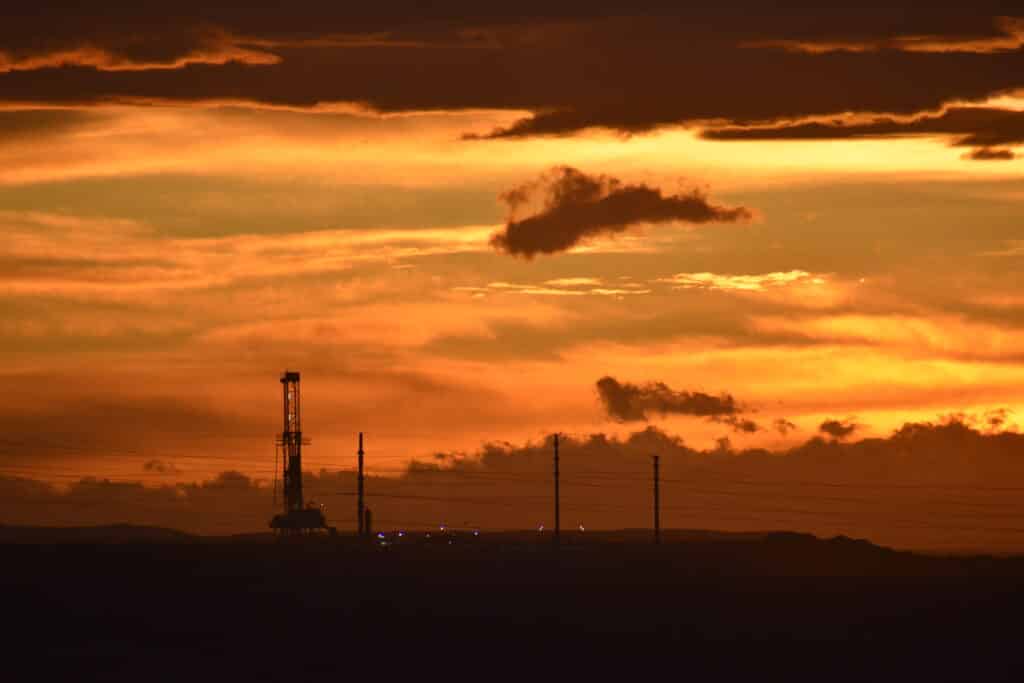
Global Institutions Promote Vaca Muerta
The global shift to clean energy leaves Argentina’s fracking gambit highly exposed to a downturn. The Profundo authors estimate that the equivalent of $120 to $150 billion could be invested in Vaca Muerta through 2030. But an astonishing $96 to $120 billion of that could potentially become stranded assets — investments that unexpectedly and prematurely lose value or otherwise become liabilities.
“As many countries make the transition from a fossil fuel-based economy to a renewable (energy)-based economy, the current international attention for Argentina’s oil & gas reserves will probably be temporary,” wrote Gerard Rijk and Barbara Kuepper, authors of the report.
Argentina has repeatedly doubled-down on fracking over the past decade because of an industry-friendly narrative that has a stranglehold on public discourse, which for years has left almost no political space for alternative views. The national governments in consecutive administrations, representing different ends of the political spectrum, have steadfastly supported the oil industry generally, and fracking in Vaca Muerta in particular.
As recently as September, President Alberto Fernández met with dozens of oil executives in Houston in an effort to drum up investment. “There is a strong potential for Vaca Muerta and a great opportunity that arises in the context of the war in Ukraine that can favor Argentina,” an official traveling with President Fernández told El Cronista.
But it isn’t just oil companies and the Argentine state promoting Vaca Muerta. Many powerful global institutions are also guilty of pushing Argentina into the “oil and gas trap,” locking the country into an increasingly risky future, according to the 350.org report.
The report points the finger at the World Bank, the International Monetary Fund, regional development banks, private multinational banks, the G20, and more recently, individual European countries looking for sources of gas following Russia’s invasion of Ukraine.
For instance, despite the IMF’s vow to support macroeconomic policies that cut emissions and invest in green growth worldwide, its long and complicated relationship with Argentina has led it down a different path. Its strategy in the country is to promote policies that stabilize the currency, balance the budget, and restore confidence in capital markets. The IMF’s mission in countries where it works is to maintain financial stability. In practice, that means, among other things, pushing Argentina to support export industries, such as oil and gas.
“The role of the IMF as a lender of last resort and as the only agent who can effectively change policy in a country for it to have the resources to pay back its debt means it is highly influential in policy making,” Federico Sibaja, a consultant for Buenos Aires-based Fundación Ambiente y Recursos Naturales (Environment and Natural Resources Foundation, or FARN), an environmental NGO, told DeSmog. Sibaja said the IMF has repeatedly promoted Vaca Muerta as an economic boon because it could increase energy exports, which is an “absolute contradiction with its new climate policy.”
But even the economic case is riddled with problems. Operations in Vaca Muerta depend on government subsidies. The government spent $6.5 billion in 2020 on energy subsidies, a sum that ballooned to $12.37 billion in 2021, according to FARN. Some of that was dedicated to helping out consumers on their utility bills, but roughly 10 percent of the total went directly to oil and gas companies in the form of subsidies.
“For a country that is extremely indebted and has serious social problems, as is the case with Argentina, giving away this value to some of the largest companies in the world is immoral and absurd,” Emanuelli said.
Moreover, the increasing reliance on the oil and gas industry as a solution to a debt crisis, and the IMF’s role in perpetuating that approach, “will definitely be a risk for sovereignty and energy and climate governance,” Sibaja added. “This model is absolutely unsustainable and undermines the fundamental rights of the majority of the population” and will result in “further locking an energy model that’s violent.”
Other international institutions are also at work. The World Bank loaned $135 million to Pan American Energy in 2019 so that the company could expand an oil refinery that receives oil and gas from the Vaca Muerta. The World Bank has come under fire for continuing to support fossil fuel investments in developing countries, which undercut global climate efforts and saddle countries with fossil fuel assets that are becoming increasingly risky as the energy transition unfolds.
“The World Bank and the International Monetary Fund contribute to the maintenance and expansion of Vaca Muerta both by not linking their credit policy to the energy transition and by supporting the false narrative of the Argentine government and the financial market that Vaca Muerta is essential for the development of the country,” Emanuelli said.
The U.S. government has also issued loans to support fracking. The U.S. Overseas Private Investment Corporation (an agency that was merged into the Development Finance Corporation several years ago) gave a $300 million loan to Vista Oil & Gas in 2019, a Vaca Muerta-focused oil company. The loan funded fracking for 110 wells, as DeSmog reported at the time.
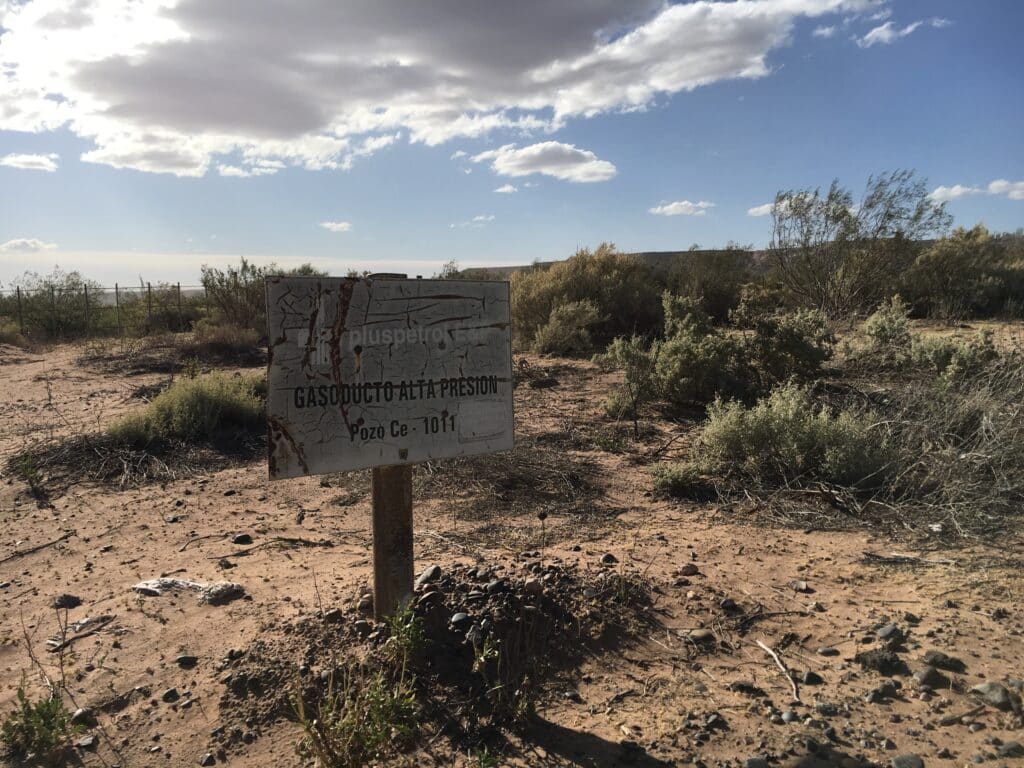
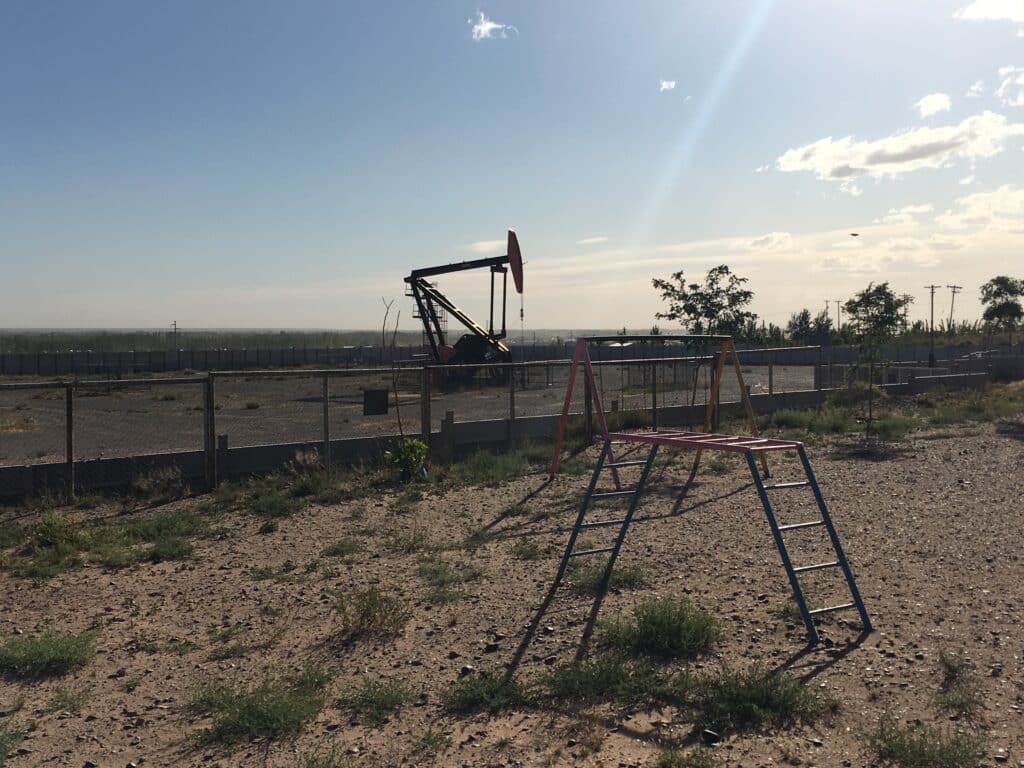
Dark Side of Vaca Muerta Ignored
Unaccounted for environmental and health costs of continuing to expand Vaca Muerta could total $2 to $4.5 trillion, the report estimates.
But the enormous costs are not exactly “hidden” to people living close to drilling sites. Gas flares emitting plumes of smoke are common, worsening air quality. Drillers have disposed of fracking waste at illegal dumps, with toxic and radioactive materials in unlined pits putting nearby impoverished communities at risk. Routine earthquakes rattle houses, cracking walls in homes.
“In the province of Neuquén, communities near the oil and gas exploration areas in Vaca Muerta report changes in the color and taste of the water they use for supply since the operations of fossil fuel companies began,” Emanuelli said. “Many families have already stopped using the water from the region’s aquifers for fear of contamination from chemical waste from fracking.”
Just last month, a large explosion at an oil refinery in Neuquén killed three workers. “Urgent measures must be taken to put an end to the permanent disregard for the lives of workers as if they were interchangeable parts,” an oil workers’ union said in a statement immediately after the explosion, announcing a strike over unsafe working conditions.
The Indigenous Mapuche people in Neuquén have particularly suffered from the expansion of the Vaca Muerta. For years, Mapuche communities have been ignored by the national and provincial governments and have not had their land claims recognized, but Argentina’s rush to exploit its shale reserves has resulted in an industrial incursion on their ancestral lands. They have resisted the expansion of fracking, and have even filed lawsuits against several oil companies for environmental contamination.
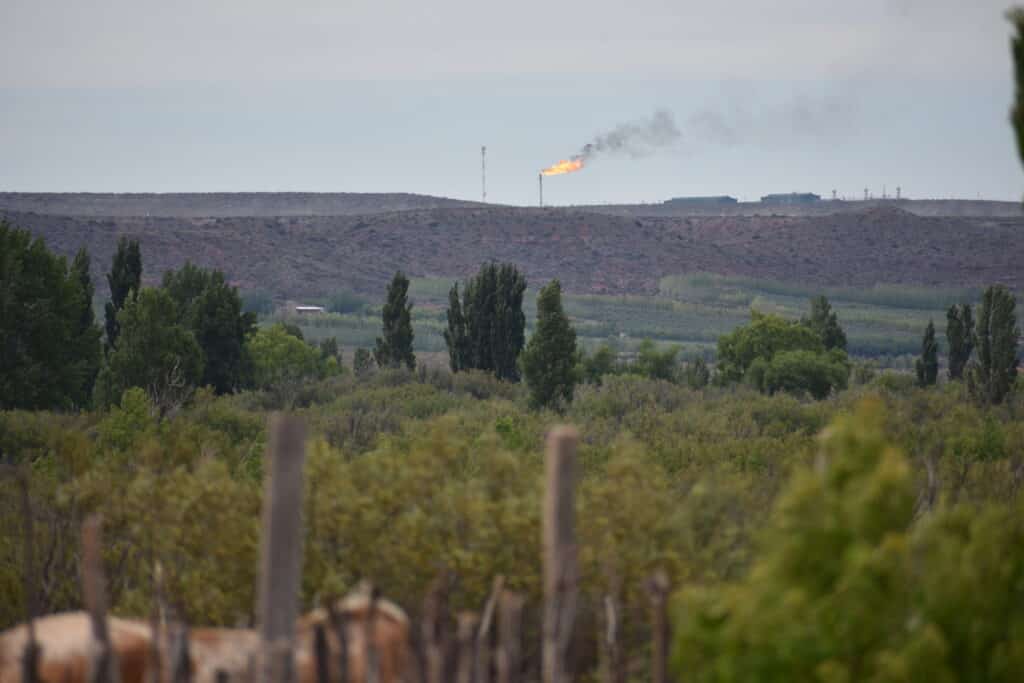
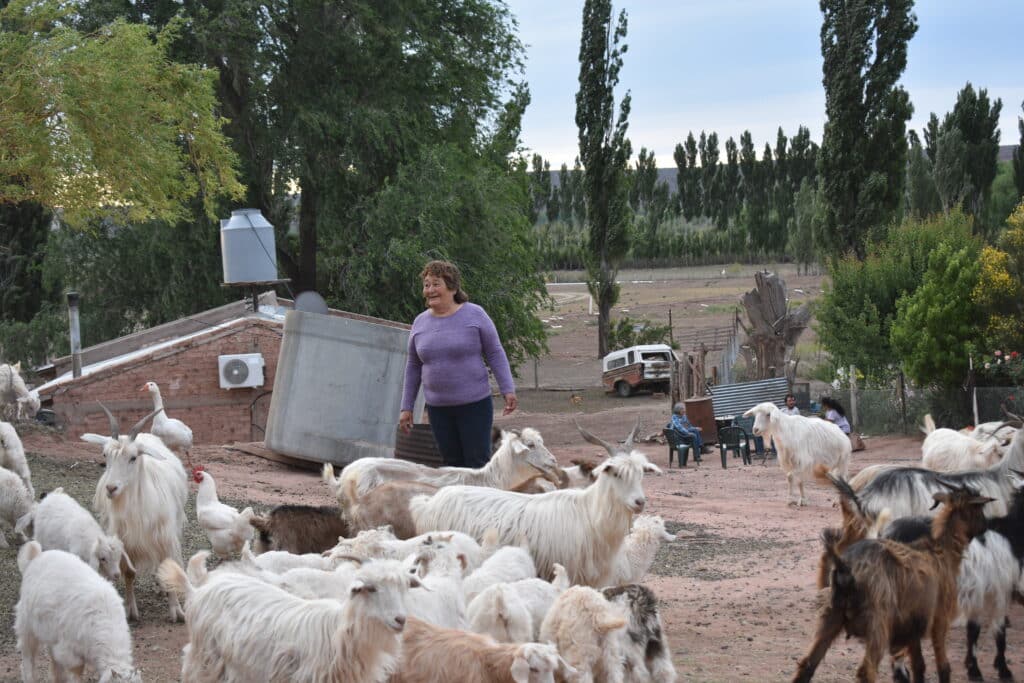
But the state has responded with increased militarization. Just as state security forces violently suppressed Indigenous communities at Standing Rock, and continue to do so in British Columbia, the Mapuche also suffer from a state security apparatus oriented towards clearing the path for oil and gas drilling.
More recently, Argentine authorities have engaged in negotiations with Mapuche organizations in an effort to tamp down tensions and smooth the way for the industry’s expansion. Those talks have taken on greater urgency as the provincial and national governments have tried to jumpstart the long-stalled Nestor Kirchner pipeline, a proposed long-distance pipeline that would carry Vaca Muerta gas to the province of Buenos Aires. If completed, it could deliver more gas to the country’s main population center in the nation’s capital, opening up the door to higher levels of fracking back upstream in Neuquén.
The project suffered from repeated delays due to the difficulties of obtaining financing, and also the collapse of the market during the pandemic. But it remains one of the industry’s — and the government’s — top priorities. While delayed, pipeline construction is proceeding, backed by government financing.
The longer-term goal for Argentina is to build an LNG export terminal on the coast capable of shipping Vaca Muerta gas around the world. But the earliest such a project could be completed is the end of the decade.
As investments in fossil fuel infrastructure continue to rise, so too do the risks. Going forward, the danger is that Argentina continues to build up an oil and gas industry that will become increasingly irrelevant and uncompetitive as the world moves on from fossil fuels.
As the industry’s fortunes decline, Argentina could once again find itself in an economic bind. While the government hopes to cash in on a fracking boom, it may only be sowing the seeds of the next debt crisis, the report said.
Emanuelli of 350.org put it bluntly: “Vaca Muerta is an economic bomb that the Argentine government and oil and gas companies are throwing into the arms of Argentines.”
Subscribe to our newsletter
Stay up to date with DeSmog news and alerts


